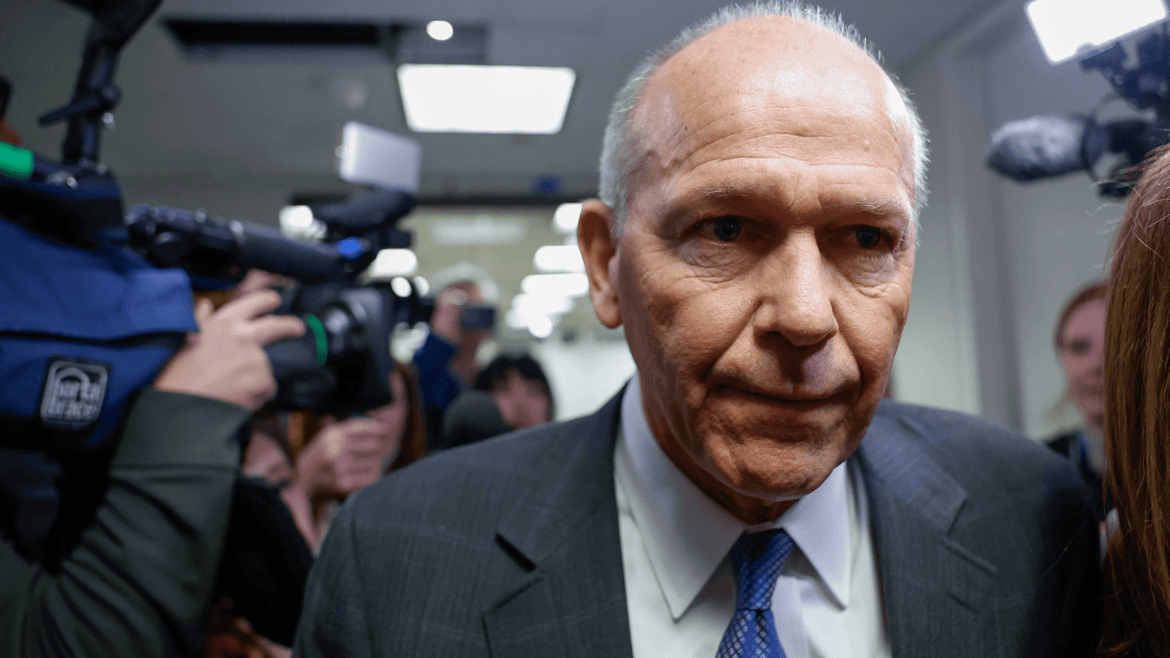The aerospace company announced on Monday that Dave Calhoun would step down at the end of the year. Calhoun joined the company in 2020 and has been handsomely compensated for his work, taking home $21 million in 2020 and 2021 and $22.5 million in 2022.
Boeing is making some serious changes in leadership in the wake of recent events that have soured public opinion of the company.
The beleaguered aerospace company announced on Monday that president and CEO Dave Calhoun would be leaving the company at the end of the year.
Calhoun joined the company in 2020 and has been handsomely compensated for his work, taking home $21 million in 2020 and 2021 and $22.5 million in 2022, according to SEC filings.
At the same time, Boeing said that Stan Deal, the president and CEO of the commercial airlines department, would be retiring from his post. Deal pocketed $21.5 million in total compensation for his work at the company between 2020 and 2022, according to SEC filings.
The company also announced that the chairman of the Boeing board, Larry Kellner, would not seek reelection at the annual shareholder meeting later this year.
News of these departures come as the company deals with an ongoing safety scandal that began in January when a door plug broke off of a Boeing 737 Max in the middle of a flight.
Calhoun acknowledged this incident in an internal memo announcing his departure on Monday, writing to employees: "As you all know, the Alaska Airlines Flight 1282 accident was a watershed moment for Boeing. We must continue to respond to this accident with humility and complete transparency. We also must inculcate a total commitment to safety and quality at every level of our company."
The subsequent audit of the company's production practices for the Boeing 737 Max by the Federal Aviation Administration (FAA) uncovered dozens of issues with the assembly of the aircraft.
"To hold Boeing accountable for its production quality issues, the FAA has halted production expansion of the Boeing 737 MAX, is exploring the use of a third party to conduct independent reviews of quality systems, and will continue its increased onsite presence at Boeing’s facility in Renton, Washington, and Spirit AeroSystems’ facility in Wichita, Kansas," the FAA said in a statement after completing its six-week audit of the company.
Boeing has promised full transparency moving forward with the FAA.
The 737 Max had been grounded in 2019 following two crashes that were later determined to be a result of insufficient pilot training on the use of Boeing-designed software. Those two crashes—Lion Air Flight 610 and Ethiopian Airlines Flight 302—claimed the lives of 346 people.
In the wake of the investigation into the Ethiopian Air Crash, Boeing said in a statement: "Safety is a core value for everyone at Boeing and the safety of our airplanes, our customers' passengers and crews is always our top priority. Boeing's technical experts continue to assist in this investigation and company-wide teams are working to address lessons from the Lion Air Flight 610 accident in October."
Then, following the completion of an investigation into the Lion Air crash, Boeing said: "We are addressing the KNKT's safety recommendations, and taking actions to enhance the safety of the 737 MAX to prevent the flight control conditions that occurred in this accident from ever happening again. Safety is an enduring value for everyone at Boeing and the safety of the flying public, our customers, and the crews aboard our airplanes is always our top priority. "
Less than a week after the FAA released its most recent statement about production practices inside the company, Boeing found itself back in the news when a whistleblower who first rang the alarm about safety issues allegedly took his own life.
John Barnett, 62, was found dead on March 9 from a self-inflicted gunshot wound, according to a statement from the Charleston County Coroner's Office. That statement also said that the Charleston Police Department is investigating the suicide.
An employee for 32 years, Barnett filed a complaint against the company with the Occupational Safety and Health Administration in 2017 and had been giving his deposition in that case at the time of his death.
Boeing responded to news of Barnett's death in a brief statement, saying: “We are saddened by Mr. Barnett’s passing, and our thoughts are with his family and friends."
Related Stories






